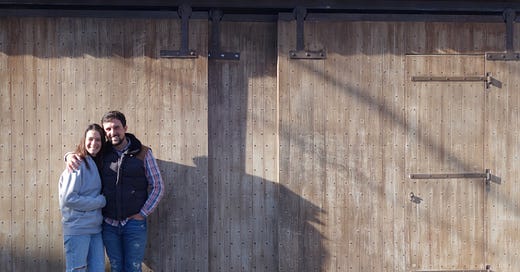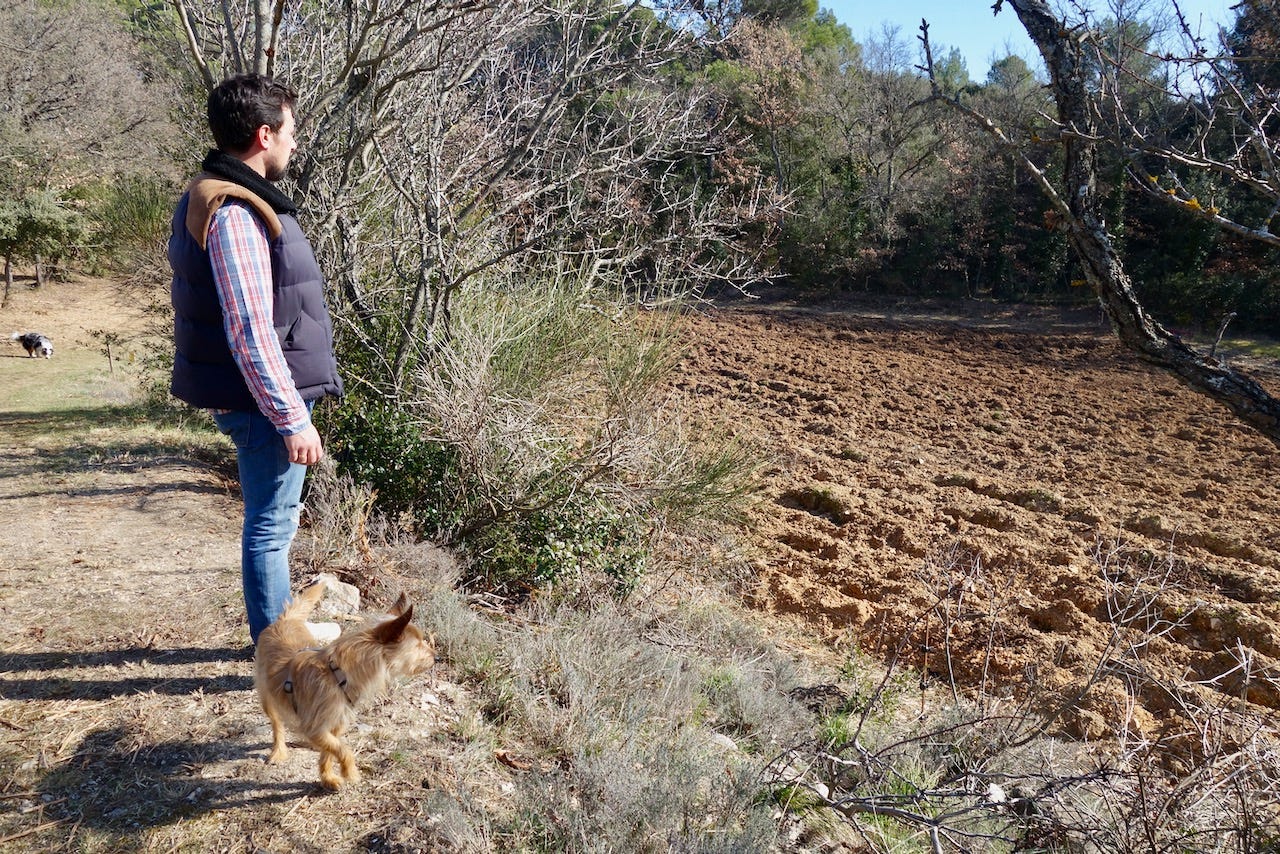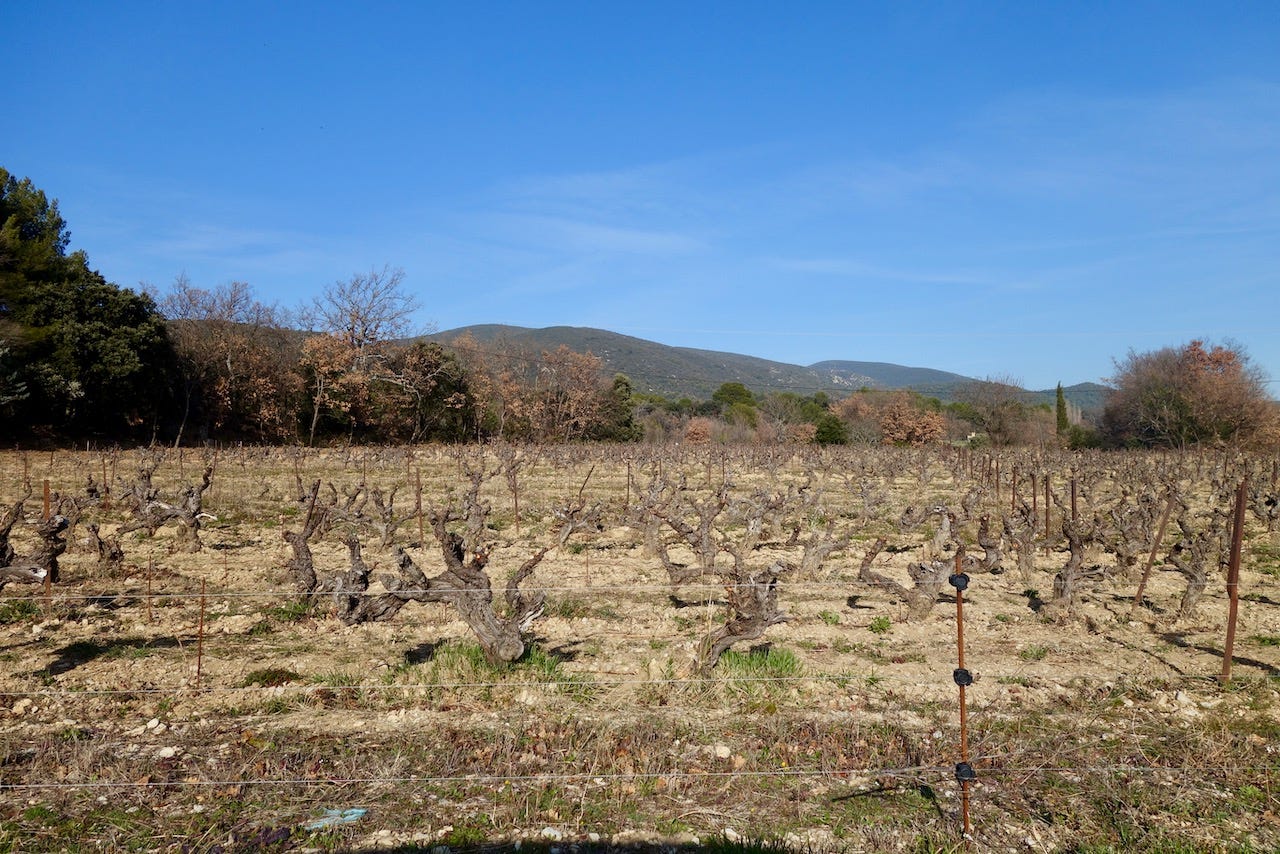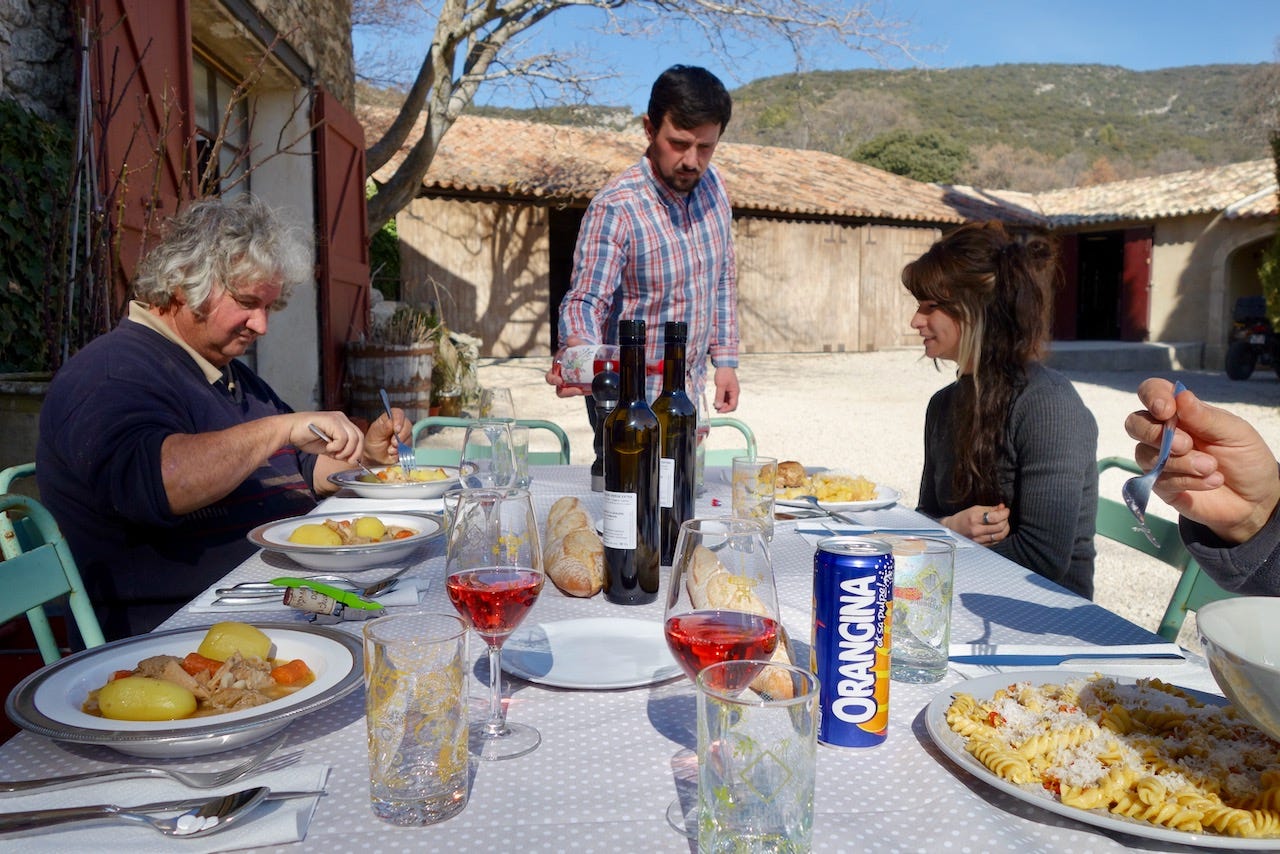PROVENCE - Julien Besson of Domaine de la Cavalière, Lourmarin
Verre Volé alum Julien Besson manages this 47ha Luberon estate, comprising 8ha of vines and another 8ha of olive trees.
I have an affection for the semi-ruinous, desolate, out-of-the-way places one encounters in pursuit of good winemaking: the dank caves of Saumur, the lonely windswept hamlets of the Puy-de-Dôme, the remote heights of Beaujeu in the western Beaujolais.
Domaine de la Cavalière - a 47ha Luberon estate stewarded by dynamic young chef-turned-winemaker Julien Besson, comprising 8ha of vines and another 8ha of olive trees - is not such a place. On the beaming sunny day the Native Companion and I visit back in late February, it rather more resembles paradise.
Goats graze beside horses and a mule in a pasture overlooking a nascent vegetable farm, bordering a pen where geese cohabitate with rabbits. Past a phalanx of beehives stationed to profit from nearby flowers, Besson indicates a newly-cleared adjacent parcel where he intends to plant sauvignon this year. We pick thin shoots of precocious wild asparagus as we walk.
"Why can't we visit more domaines like this?" the NC remarks later.
I first met Besson years ago in Paris, where he worked as a multivalent server-slash-cook at the influential cave-à-manger Le Verre Volé. When later I reencountered him at Cheverny winemaker Hervé Villemade's Portes Ouvertes event in December 2017, he had become a winemaker and was pouring samples of his first vintage.
The story of how Besson came to oversee a luxurious, bountiful estate in the village of Lourmarin has a fairytale aspect to it. On his August vacations from his work in Paris, he used to apply for jobs as a private chef in rented villas around the south. One of his regular clients was Jeffrey Ubben, founder of the San Francisco investment company ValueAct Capital and partner in the California Russian River Valley winery DuMOL.
One year, "[The family] told me they bought a farm in Lourmarin," says Besson, and asked if he'd like to look after it. "I thought, 'Oh, that sounds like it'll be cheese, goats and stuff. That's not my kind of work."
Besson, who originally from Nice, had already given some thought to moving to the country. So he visited the estate, despite his misgivings. "Then when I saw it, I said, 'That’s not called a farm, that's called a mas in Provence!" he says, laughing, employing the Provençal term for the traditional mixed agriculture farmhouses that in recent years have become sought-after as luxury vacation homes.
"I said to myself, 'You know what? To come to the calm, to the countryside, it’s maybe the right time to create one's life. That could be okay."
That was four years ago. Today Besson, who is 36, produces natural wines from the estate's grenache, bourbelenc, syrah, and merlot vines, along with two marvelous olive oils. The wines have already found placement at renowned Paris restaurants, both new-wave (Le Cadoret) and old-guard (Yve Camdeborde's L'Avant-Comptoir wine bars). Besson does brisk business with the stunning unfiltered olive oils at the wine tastings where he shows his wines. (The "Fruité Noir" version, made with partially fermented olives, is particularly rich and enveloping.)
Besson, overqualified as a caretaker, created new roles as he went along, with the laudable encouragement of the owners. The estate wasn't farmed organically when Besson arrived, but he changed all that. "It was easy," he says, "because there's no one next to us."
The isolation has drawbacks, too, including the lack of nearby winemakers working naturally. (The NC and I had driven ninety minutes down from visiting other winemakers near Cairanne.)
"It’s not like in the Beaujolais, it’s not like in the Loire. It’s complicated. There’s still a lot of [winegrowers working within a] cave-cooperative," Besson says. "But I think the Luberon will become what the Languedoc was fifteen years ago. Little by little there are quite a few young [winemakers] that start to arrive."
Besson's own approach in the cellar is rather pragmatic for now, as he learns the potential of his terroir, which is dominated by the Luberon massif to the north. He vinifies on native yeast, with a minimum of sulfites, but his whites and rosés generally see a light filtration before bottling. This is to say they are not out there on the cliff's edge of natural wine - but they are already quite radical for the region, by dint of vinification on native yeast, and not having their malolactic fermentations blocked. Besson's wines so far never lack for acidity, the vines benefitting from cool evenings in the shade of the massif. He says he seeks to make wines for simple, pure easy-drinking, itself an outlier stance in Provence, where production often seems divided between headache-inducing artificial rosé and massive, over-oaked, Bordeaux-aping reds.
On the day we visit in February we drink a bottle of 2017 rosé over plates of tripe Besson has prepared. Crisp, fruitful, dry, and a vivid, deep magenta, the wine gives lie to the tenacious myth that dark rosés are necessarily rich or sugary. Even more spirited and toothsome was a micro-cuvée of old-vine grenache released as an unfiltered primeur, which I tasted last fall in Paris at Le Cadoret. The Cavalière wines aren't intended as showstoppers. But - along with the rest of the pristine, multivalent estate - they evidence Besson's striking talent and dynamism. They smell of promise, as pungent as the wild thyme lining the pathways by the olive orchards.
Later, towards the end of our walking tour of the estate, Besson points out two well-fed black pigs, sisters, sharing a cage with chickens. "They were little Vietnamese pigs," he explains. "But here we feed them everyday, now their stomachs are dragging the ground."
"Will you eat them?" we ask.
"My friends never stop asking me that! No, no one's going to eat them."
Besson explains that among his greatest challenges at Domaine de la Cavalière has been learning how to cook without meat, for the estate's owners, who summer there, have gone vegetarian.
Domaine de la Cavalière
La Cavaliere
84160 LOURMARIN
FURTHER READING
A hilariously ritzy, soft-focus video of the four seasons at Domaine de la Cavalière.









Considering ongoing middle-class extinction as well as elite enclosure of productive land - whether as investments, follies or holdfasts, how many more natural wine producers will fall under the aegis of similar benevolent lords ? Doesn't sound too bad really